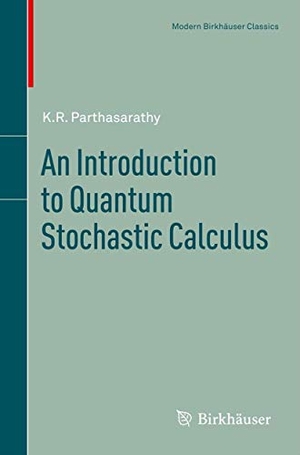Für statistische Zwecke und um bestmögliche Funktionalität zu bieten, speichert diese Website Cookies auf Ihrem Gerät. Das Speichern von Cookies kann in den Browser-Einstellungen deaktiviert werden. Wenn Sie die Website weiter nutzen, stimmen Sie der Verwendung von Cookies zu.
Cookie akzeptieren
K. R. Parthasarathy
An Introduction to Quantum Stochastic Calculus
- Springer Basel
- 2012
- Taschenbuch
- 304 Seiten
- ISBN 9783034805650
An Introduction to Quantum Stochastic Calculus aims to deepen our understanding of the dynamics of systems subject to the laws of chance both from the classical and the quantum points of view and stimulate further research in their unification. This is probably the first systematic attempt to weave classical probability theory into the quantum framework and provides a wealth of interesting features: The origin of Itös correction formulae for Brownian motion and the Poisson process can be traced to commutation relations or, equivalently, the uncertainty principle. Quantum stochastic integration enables the possibility of seeing new relationships between fermion and boson fields. Many quantum dynamical semigroups as
Mehr
Weniger
zzgl. Versand
in Kürze